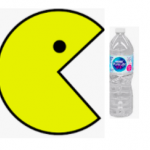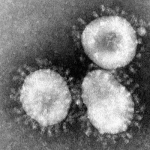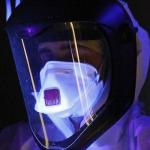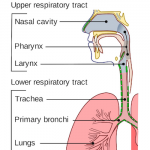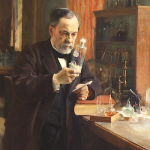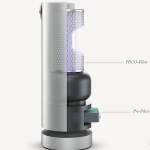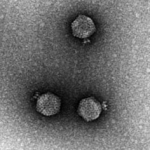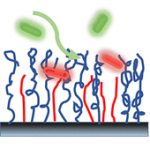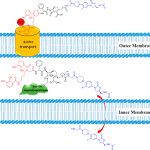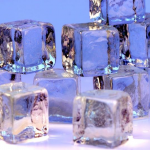Plastic bottles litter most of the world. There have been ongoing efforts to find methods to biodegrade PET, a very common plastic used for bottled water. British scientists have discovered an efficient way to get bacteria to "eat" PET plastic. Here's how it works.
bacteria
All told, there are probably a couple of hundred different causes of the common cold. Amazon's attempt to create a common cold vaccine is, therefore, a foolish waste of money. Instead, the asset-rich company should spend it on antiviral research.
Boeing has designed self-cleaning airplane bathrooms that implement UV light. To stop the spread of infectious disease, the entire airplane cabin -- and perhaps other public places -- should also be bathed in UV light.
A Virginia news report states that two people died and 18 are hospitalized following an outbreak of an unknown respiratory infection at a retirement community. It's probably not influenza, but answers as to the cause are elusive.
Identifying the cause of an infectious disease is time-consuming and not always easy. So a company called Karius has developed a blood test that analyzes cell-free DNA to identify more than a thousand pathogens.
A story that's gone viral (again) claims that McDonald's touchscreen menus are fecally tainted. Is it true? No. The global headlines saying otherwise are total lies. So, on what basis are these folks making that ridiculous claim?
You don't need to purchase an air purifier for your house. You have a built-in air purifier called the respiratory system.
Since bacteria, such as those that cause gonorrhea or gastrointestinal infections, are becoming increasingly resistant to antibiotics, scientists are searching for outside-the-box ideas to tackle the problem. They may have found in one in bacteriophage: viruses that exclusively infect and kill bacteria.
Antibacterial surfaces are one way that we are fighting back against antibiotic-resistant bacteria. In one type of surface – naturally found on dragonfly wings – tiny pillars physically rip bacteria apart.
Ironically, from the bacterium's perspective, the very enzyme that it uses to protect itself from antibiotics becomes complicit in its own demise.
The authors had a clear strategy in mind: (1) Do a study on a common household object; (2) Produce boring data that doesn't surprise any microbiologist; (3) Write a provocative, fear-mongering headline; (4) Market it to a gullible, clickbait-hungry press, exhibiting no critical thinking; and (5) Watch the grant dollars roll in.
We expect bacteria to be almost everywhere. New research shows that even though there are bacteria living in ice cubes, those same bacteria cannot survive in whisky. So, the next time that you want to have a scotch, go ahead and throw in the rocks.
